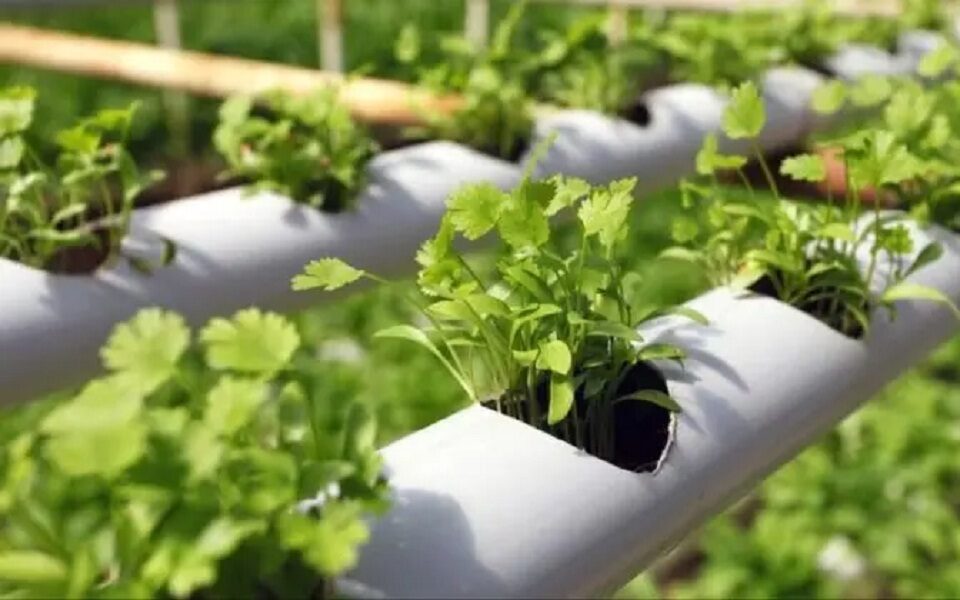Cypriot leading soil-free crop growth team

Growing crops without soil may sound like a contradiction, but for the research team Eplants (Electronic Plants) at Linkoping University, Sweden, led by Cypriot Associate Professor Eleni Stavrinidou, it is not only possible, but also groundbreaking.
The team has developed an innovative “bio-electronic soil” (E-Soil) that boosts the growth of barley crops by 50% when their roots receive electrical stimulation through it. This prototype is an electronically conductive substrate designed specifically for hydroponic crops.
“The global population is growing and climate change clearly shows that we cannot meet the planet”s nutritional needs with existing agricultural methods alone. With hydroponics, we can grow food in urban environments under very controlled conditions,” Stavrinidou explains.
Kathimerini Cyprus spoke with the Cypriot physicist, who studied at the Aristotle University in Thessaloniki, northernGreece, and at the Ecole Nationale Superieure des Mines de Saint Etienne in France, and specialized in nanotechnology and bioelectronics. She currently teaches and conducts research at Linkoping University on the application of bioelectronics to plants.
According to the study published in Proceedings of the National Academy of Sciences, E-Soil is made of organic materials mixed with a conductive polymer called PEDOT, which is used in common objects such as sensors and OLED displays.
The researchers examined the effect of electricity on barley plants for 15 days before harvesting and found that applying a low voltage from E-Soil electrically stimulated their roots, leading to a 50% increase in biomass compared to non-stimulated plants.
The researchers also observed that nitrogen, one of the main nutrients involved in plant growth, was processed more efficiently by the plant through stimulation. “However, despite this finding, we still do not fully understand how stimulation affects nutrient processing,” she added. She said that this is what future studies will focus on.
Stavrinidou further said that bio-electronic soil is environmentally friendly, as it is derived from cellulose and the conductive polymer, and works at low voltage, making it a safe alternative to previous methods that required high voltage and non-biodegradable materials. E-Soil consumes low energy and reduces resource consumption.





